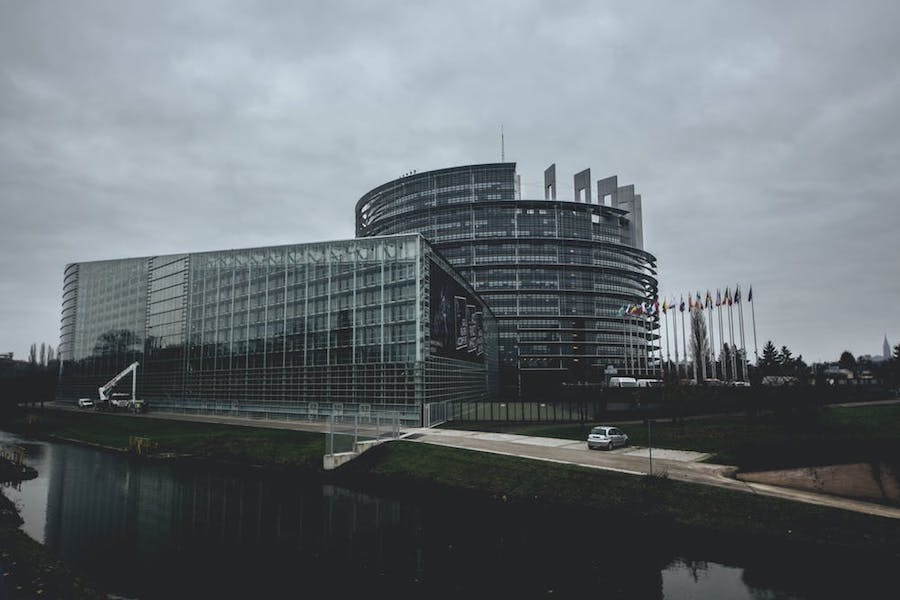
In the second half of 2022, the Czech Republic will hold the Presidency to the Council of the EU and to some extent, it will set the agenda for negotiations in this key institution. The founders of CEBRE prepared recommendations for the government of the Czech Republic on how to approach some important topics that will come up during the second half of next year. Although the key player during the presidency is the government and the individual ministries, the European Parliament and its members will often negotiate with the presidency. Therefore, on 16th April, CEBRE founders held an online discussion with Czech MEPs to inform them about their priorities for the Czech Presidency.
During the Presidency, dealing with the consequences of the coronavirus pandemic will undoubtedly still be one of the key topics. In addition, the EU will intensively negotiate initiatives that will affect the competitiveness of European companies, such as the transition to a digital and climate-neutral economy. Companies will play a key role in the process of economic recovery and the EU must create an environment in which businesses thrive. It must be based on a strong industrial strategy that will support the growth of the competitiveness of European companies of all sizes, both in the internal market and globally. The digital area also offers great potential. “The EU must create conditions for the development of digital infrastructure, including a legal framework that will enable digital transformation and support the development of technologies, e.g. in the field of artificial intelligence,” said Jaroslav Hanák, President of the Confederation of Industry of the Czech Republic.
The transition to a climate-neutral economy through the implementation of the Green Deal for Europe is and will be another key topic in the EU. However, according to CEBRE founders, this process must not jeopardize the competitiveness of the industry. The EU’s climate goals will require significant investment in technology. “The EU must therefore provide a sufficient number of support programs that will take into account the costs of the transition to a climateneutral economy,” stressed Vladimír Dlouhý, President of the Czech Chamber of Commerce.
Given the current crisis, many important topics are about to be discussed in the social area, where the EU should aim to promote employment, increase the skills of employees and overcome other shortcomings in the labour market. Discussions are also expected on the recently presented proposal for a directive on the minimum wage. “We are not in principle against the minimum wage, but the EU should only provide recommendations to the Member States, not impose obligations,” said Jan Zikeš, Secretary General of the Confederation of Employers’ and Entrepreneurs’ Associations of the Czech Republic.
CEBRE founders consider the single market to be one of the biggest benefits of EU membership. The Czech Republic should promote measures that support the functioning of the internal market and reject protectionist solutions hindering the free movement of goods, persons, services, capital and data.
Industrial strategy must INCREASE COMPETITIVENESS of European companies
On 5th May, the European Commission updated the 2020 industrial strategy in the light of the ongoing COVID-19 pandemic. The pandemic has exposed the vulnerability of European industry in being dependent on global value chains as well as a strongly interconnected single market. Strategic dependence is evident especially in energy-intensive industries (raw materials), health ecosystems (pharmaceutical ingredients), but also with respect to other products important to support green and digital transformation (hydrogen, semiconductors, processors). The updated industrial strategy aims to support European industry in developing strategic capacity needs, finding alternative solutions for dependencies of supplies, but also tackling unfair practices and foreign subsidies that distort the level playing field in the single market. The updated industrial strategy was discussed by representatives of EU institutions, Czech Ministry of Industry and Trade and employers’ organizations at an online debate co-organized by CEBRE on 25th May.
Speakers agreed that the EU must stay an open market because that is one of the biggest competitive advantages of the single market, and needs to focus on creating high value-added products. There needs to be a level playing field for all companies regardless of whether they are European or not. The European Parliament welcomed the updated version of the strategy and stressed that businesses will play a crucial role in the two main policies of the European Commission, which are green and digital transition. A special attention needs to be paid to small and medium-sized enterprises that were hit hard by the current crisis, and provide them with instruments to grow without overloading them with administrative burdens.
Representatives of the Ministry od Industry and Trade and the Confederation of Industry agreed that there are huge opportunities for Czech companies to get involved in the industrial alliances, for example in the area of batteries or cloud computing. Especially small and medium-sized companies should participate in the alliances in order to support their growth. The concept of the open strategic autonomy that the European Commission presented in the updated strategy will be an important one not only from the point of view of the internal market, but it will have an impact on the EU trade policy as well. Last but not least, speakers agreed that skilled workforce is an essential prerequisite for the industrial strategy to be a success.

